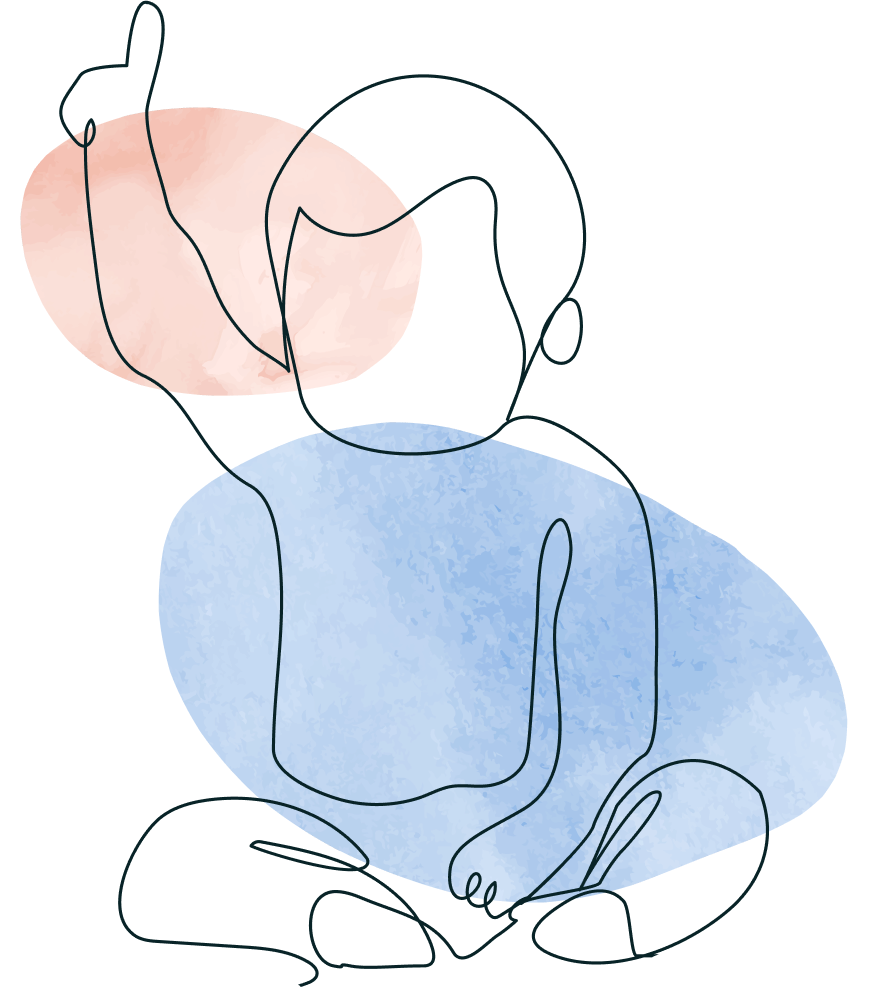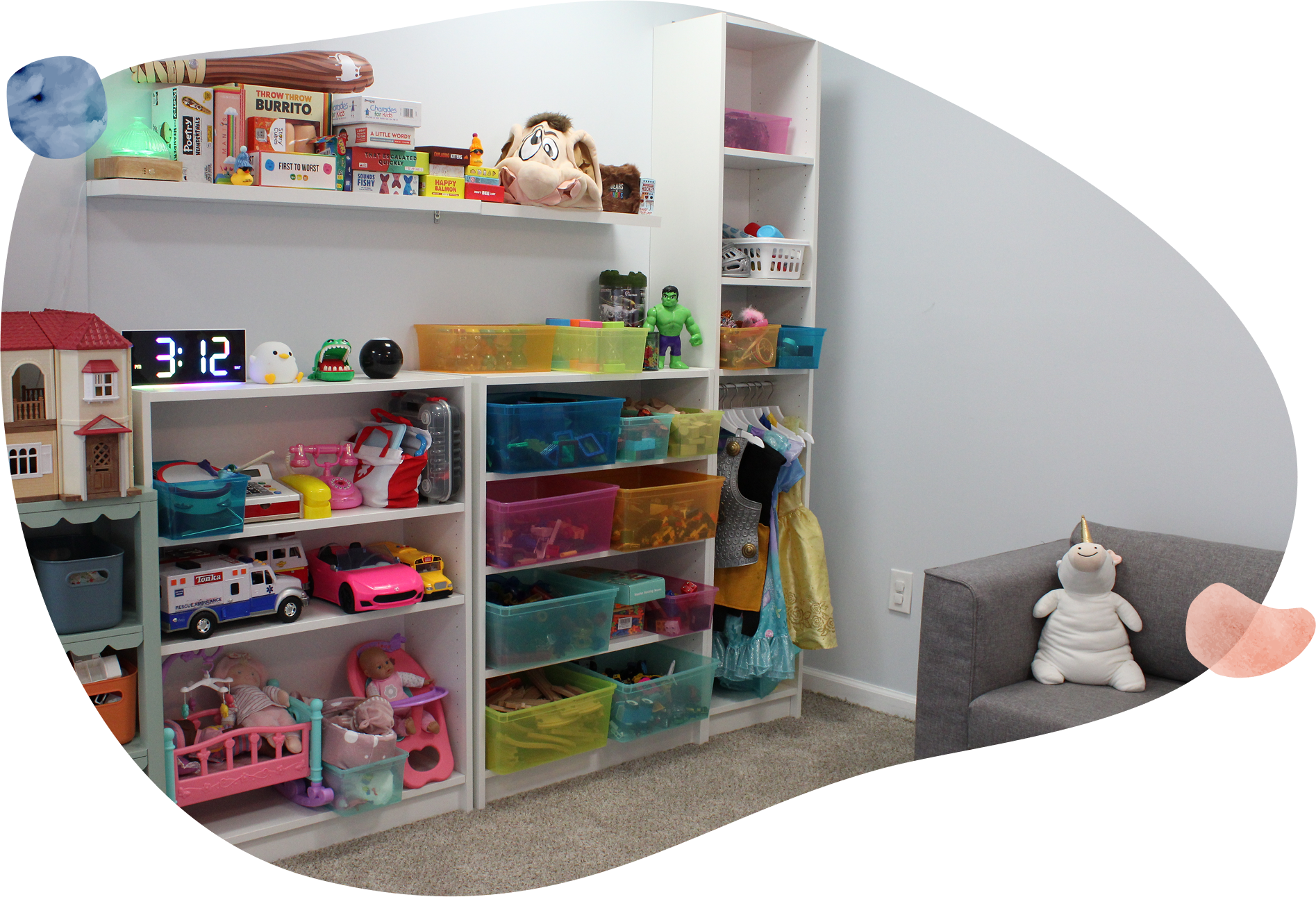


You might consider therapy if your child is having frequent tantrums, trouble separating from caregivers, trouble sleeping, or difficulty adjusting to changes like a new sibling or starting school. Other signs include withdrawal from play, regressions (like bedwetting or baby talk), or acting out in ways that feel new or out of proportion. These behaviors can be a child’s way of saying, “I need help.” Therapy can offer a safe, playful space to process big feelings and support their development.
Play therapy is a developmentally appropriate way for kids to process emotions, build coping skills, and communicate. We use toys, games, art, and other creative tools to help children express what they're going through in a way that makes sense to them.
You might notice your child becoming more emotionally regulated, having fewer meltdowns, using language to express feelings, or navigating social situations more easily.
Although progress might be slow, signs of improvement can include enhanced emotional regulation, fewer tantrums or outbursts, increased self-confidence, and better social interactions.
Your child may start to express their thoughts and feelings more openly or use play to process emotions outside of therapy sessions. Other indicators of progress include reduced anxiety or behavioral issues, improved problem-solving skills, and a greater ability to manage frustration or disappointment. We will also provide feedback on your child's progress, highlighting themes in play that indicate emotional growth or healing. Since each child progresses at their own pace, maintaining consistency and patience is crucial for achieving meaningful results.
We also provide regular feedback and check-ins on progress.
Yes. We view caregivers as essential partners. We’ll check in regularly, offer guidance, and help you support your child’s growth outside of sessions.
You're an essential part of your child’s healing. We regularly connect with caregivers to share insights, coach around challenges, and ensure your family system is supported as a whole. We’re not just here to “fix behavior” — we’re here to strengthen connection and capacity.
That’s okay — and totally common! Kids and teens often need time to feel safe. We’re trained to work with nonverbal communication, play, and body language to help them feel seen and understood without pressure. Trust is built gradually, and we’ll keep you informed as things shift.

